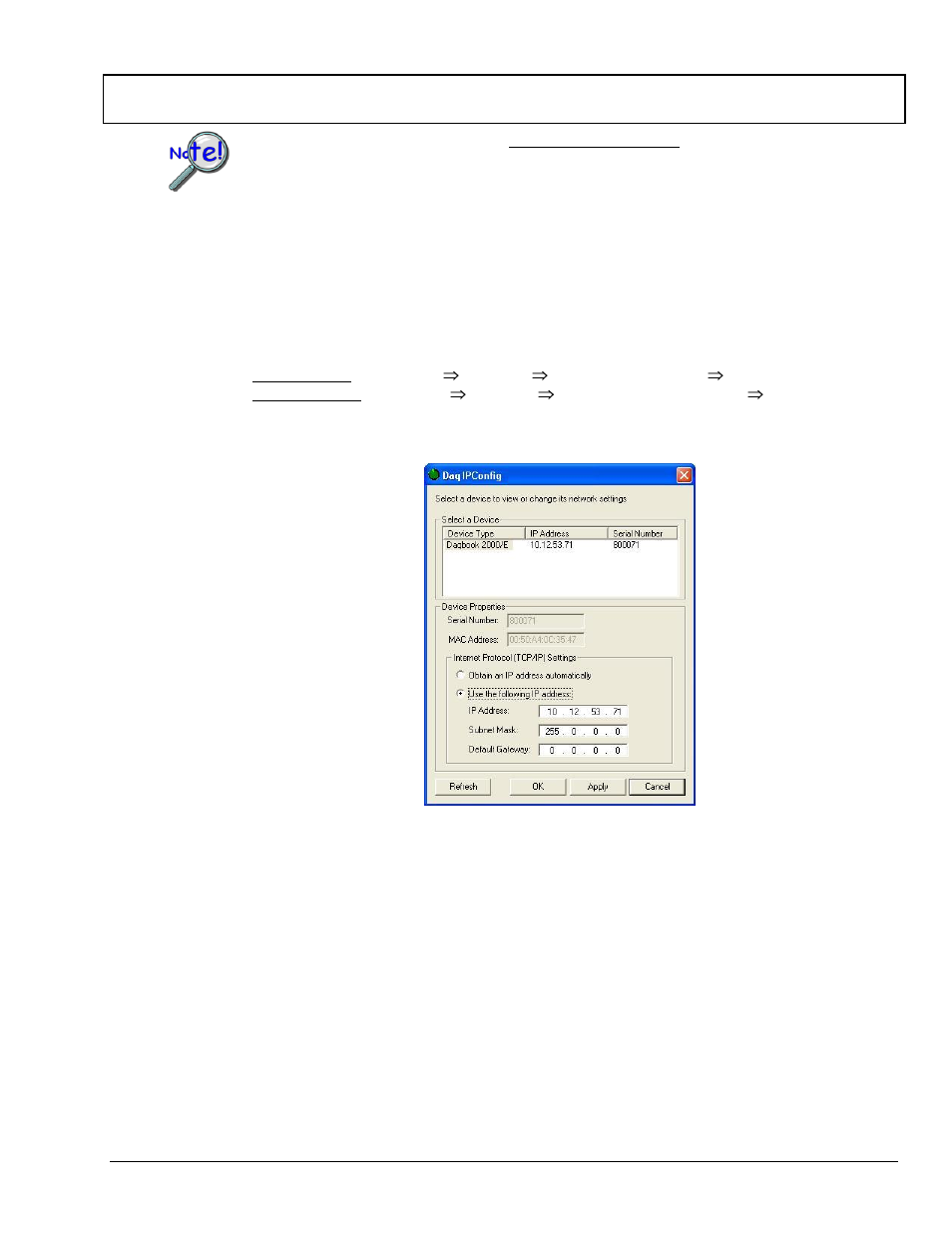Step 6 – Measurement Computing WaveBook rev.5.3 User Manual
Page 37

2-17 System Setup & Power Options
947191
Connecting to the Ethernet
STEP 6 -
Configure Device Network Settings using DaqIPConfig
Applies only to a LAN (Local Area Network), which has a no DHCP server.
If using a LAN (Local Area Network), which has a DHCP server, skip this section and continue
with STEP 7 - Configure and Test the System using the Daq*Configuration Applet
(page 2-18).
The DaqIPConfig applet is designed for 32-bit Windows/2000/XP/Vista systems. You can use DaqIPConfig to
change the IP address of the device to be compatible with networks that require fixed IP addresses. As a precaution,
you should always consult with your IT administrator before using the applet to ensure that each device and host
computer connected to the network maintains a unique IP address. The applet is located in the program group for
the associated device and can be accessed from the Windows Desktop via the start menu.
1. Locate the DaqIPConfig Applet.
Locate the DaqIPConfig applet by navigating from the Windows’ Desktop as follows:
DaqBook Users: Start Menu
Programs
IOtech DaqX Software
DaqIPConfig
WaveBook Users: Start Menu
Programs
IOtech WaveBook Software
DaqIPConfig
2. Open the DaqIPConfig Applet.
Click on the DaqIPConfig selection to open the applet.
DaqIPConfig
3. Select the device that is to have the address change.
Note: In the above figure there is only one device to select, i.e., DaqBook/2000E.
4. Set the internet protocol (TCP/IP) settings to be compatible with host computer.
(a) Select the radio button labeled “Use the following IP address.”
(b) Enter the new internet protocol settings. If needed, consult your network administrator for
acceptable numbers.
Do not set the TCP/IP to the
computer’s IP address!
(c) Click the
5. Reboot the device.
The new IP address will not take affect until the device has been powered-off, then powered back on.
6. Repeat steps 3, 4, and 5 for other devices in the system.
After configuring the network settings for all devices, proceed to Step 7.
